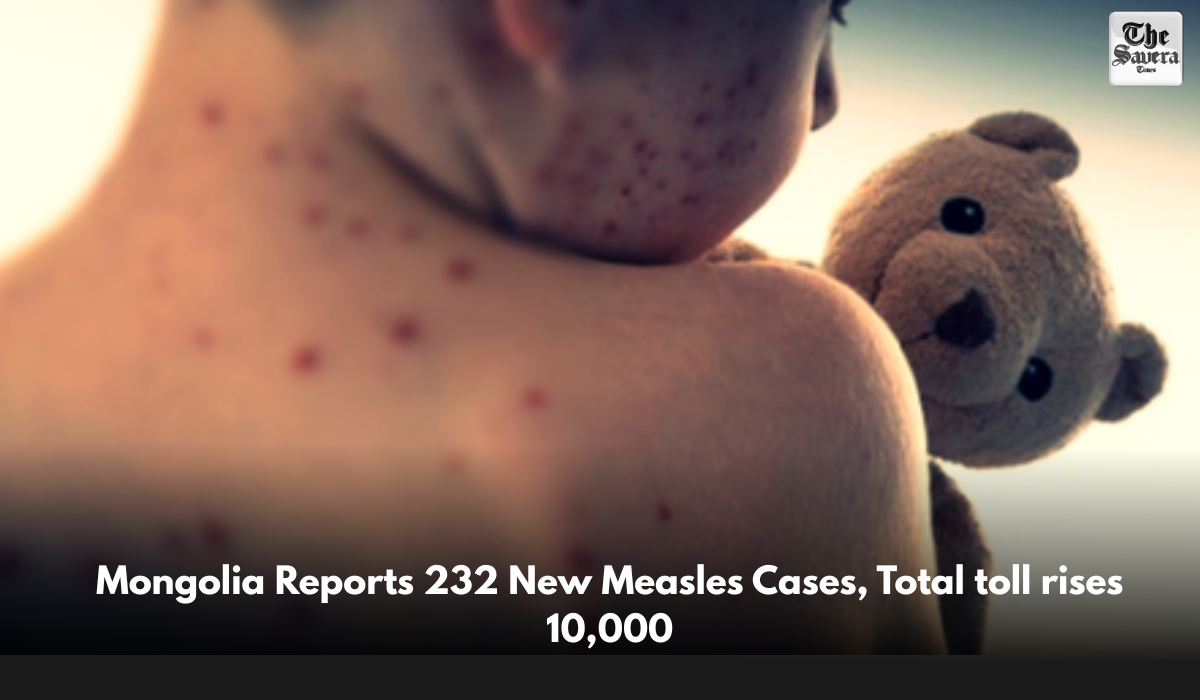
Ulan Bator, June 27: Mongolia has recorded 232 new cases of measles infection over the past 24 hours, bringing the national caseload to 10,065, the National Center for Communicable Diseases (NCCD) said on Friday.
Meanwhile, 260 more measles patients have recovered from the disease, bringing the total number of recoveries to 8,405, the NCCD said in a statement.
The majority of new measles infections were among school-age children who had only one shot of the measles vaccine, it said.
In this regard, the NCCD advised parents to protect their children from a potentially severe disease by getting them two doses of the measles vaccine, Xinhua news agency reported.
According to the World Health Organization, measles is a highly contagious disease caused by a virus. It spreads easily when an infected person breathes, coughs or sneezes. It can cause severe disease, complications, and even death.
Measles can affect anyone but is most common in children.
Measles infects the respiratory tract and then spreads throughout the body. Symptoms include a high fever, cough, runny nose and a rash all over the body.
Being vaccinated is the best way to prevent getting sick with measles or spreading it to other people. The vaccine is safe and helps your body fight off the virus.
Before the introduction of measles vaccine in 1963 and widespread vaccination, major epidemics occurred approximately every two to three years and caused an estimated 2.6 million deaths each year.
An estimated 107 500 people died from measles in 2023 – mostly children under the age of five years, despite the availability of a safe and cost-effective vaccine.
Any non-immune person (not vaccinated or vaccinated but did not develop immunity) can become infected. Unvaccinated young children and pregnant persons are at highest risk of severe measles complications.
Measles is still common, particularly in parts of Africa, the Middle East and Asia. The overwhelming majority of measles deaths occur in countries with low per capita incomes or weak health infrastructures that struggle to reach all children with immunisation.
Damaged health infrastructure and health services in countries experiencing or recovering from a natural disaster or conflict interrupt routine immunisation and overcrowding in residential camps increases the risk of infection. Children with malnutrition or other causes of a weak immune system are at highest risk of death from measles.
